Why Policy-Oriented Research is Central to the Development of Society

By Olaogun Michael Sunkanmi
Policy-oriented research goes beyond the immediate horizon of policy creation. It is a catalyst for innovation aimed at fostering an environment where evidence-based strategies can flourish, thereby propelling societies toward sustainable growth and equitable development. In essence, policy-oriented research is not merely a tool for understanding the world as it is but a means to envision and realize the world as it could be.
By a way of definition, policy-oriented research could be said to be a form of research that is directly relevant to policy choices and activities. It is research that particularly address issues that policymakers are facing or ought to be facing, to develop more effective policies. It is to generate information that can be used practically for formulation and implementation of policy and to ensure that the knowledge generated is applied to better policy results.
Fundamentally, it helps in the identification of fresh or developing problems that need policy attention; offers an evaluation of each course of action, taking into account the advantages and disadvantages of each; draws from empirical data, it makes predictions regarding the probable consequences of policy choices; assesses the efficacy of current policies, offering proof of what functions and what does not; and makes recommendations for policy changes based on methodical study and analysis. It turns the spotlight on evidence, rather than opinion, as the basis for policy decisions, thereby enhancing the quality and effectiveness of public policy.
Its numerous contributions are woven together to create a durable and ever-changing fabric of development one of which is economic expansion. As the different economies are faced with different challenges, investment in policy-oriented research would help give clearer direction to policy actors and investors. It helps in streamlining resource allocation, optimize market functions, and catalyzing innovation by discovering the most efficient economic tactics that drive societies forward.
Additionally, it promotes social advancements, equality and welfare. Policy research provides information that strengthens the social fabric of a community. It shows the way toward improved welfare services, lower inequality, and more social cohesiveness. Similarly, it helps in the discovery of useful techniques in promoting stakeholders’ participation, activity coordination, and evidence distribution that promotes public deliberation. By ensuring that social programs’ advantages are spread fairly, these tactics improve society’s overall well-being.
In sustainability and conservation, policy-oriented research is the sentinel that protects our natural world at a time when environmental problems are of the utmost importance. It guides laws that strike a balance between preserving the environment and meeting human needs and encouraging sustainable lifestyles that protect the environment for future generations.
Policy-oriented research is a strategic instrument that directs the course of society development, not merely an academic endeavor. It is the furnace where laws are created, tried, and polished to make sure they benefit society as a whole while being fiscally responsible, socially equitable, and ecologically sustainable. It plays an increasingly important role in contributing to society as we continue to traverse the complexity of the modern world, hence promoting imaginative and pragmatic attitude of problem-solving.
In its nature, policy-oriented research is a methodical and it requires deliberate process that is necessary to create policies that are receptive to societal demands. This process is characterized by a series of interconnected steps that transform data and insights into actionable policies. It starts with identifying social concerns. This calls for an acute comprehension of the intricate problems affecting communities and society at large from a multidisciplinary lens allowing for a thorough examination of the problems. To identify areas that need policy action, researchers use a range of data sources, such as social statistics, economic reports, and demographic studies. To create the conditions for successful policy responses, the objective is to identify the underlying causes of societal problems as well as their symptoms. The identification of problem is systematically followed by research design to be adopted, data collection, data analysis and data interpretation for the purpose of driving policy formulation and by extension the implementation.
However, the disconnect between the creation of policies and their execution is a major obstacle for policy researchers. Unrealistic expectations, lack of resources, or lack of clear communication between policymakers and implementers can all contribute to this disparity. To close this disparity, policy researchers need to concentrate on developing practical suggestions that fits the objectives of different stakeholders and can be implemented within the limitations of governmental organizations. Establishing a constant feedback loop that enables policy monitoring and modification throughout implementation is also very essential.
The need for strong cooperation and communication between researchers, decision-makers, and the community are necessary for effective policy research. Researchers should present their research in a way that policymakers can understand and find useful. This entails repurposing research findings into statements that are understandable, succinct, and useful for influencing policy choices. Importantly, to make sure that study findings are not just acknowledged but also taken into consideration, it is crucial to cultivate an environment of mutual trust and common objectives.
Fundamentally, it is important match policy formulation or changes to the values and culture of the society they are meant to benefit. This connection guarantees the acceptance and long-term sustainability of policies. Furthermore, it is crucial to build strong monitoring and evaluation procedures for assessing the effectiveness of policies and making necessary adjustments.
Conclusively, policy-oriented research serves a watchdog that makes sure that the laws that governs our existence are the result of thorough examination and empirical support rather than emerging from the imagination of few individuals in the legislative positions. It serves as a link between the problem and its solution, the known and the unknown, and the present and the future. Our legislators should be open to deriving insights from research that is focused on policy and should be willing to consider them. In essence, facts must lead the way in formulating laws that guarantee a better future for all.
Olaogun Michael Sunkanmi wrote from Abuja. He is the Programs Manager at Research Enterprise Systems (RES) and a Ph.D. candidate at the Institute of Governance and Development Studies, Federal University Lokoja. michaelolaogun2014@gmail.com



